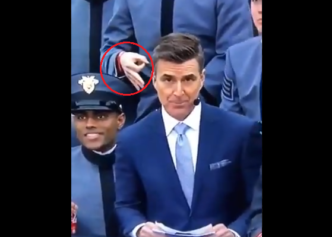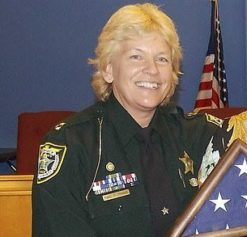What is wrong with Mississippi? It is a question that people are asking as the latest news unfolds in that Southern state.
Gov. Phil Bryant declared April Confederate Heritage Month in Mississippi. And yet, as other states have distanced themselves from the Confederate flag following the 2015 Charleston, South Carolina massacre, whites in the Magnolia state cling to that symbol of domestic terrorism and white supremacy. And a Black civil rights lawyer, Carlos Moore, has asked a federal court to remove the Mississippi flag from the state capitol, and has received death threats in the process.
Mississippi is an example of contradictions. It is the Blackest of the states of the Union, with a population that is nearly 40 percent African-American, according to U.S. Census figures. And yet — or rather because of this reality — Mississippi is the most conservative state, beating out Alabama and Louisiana in a 2015 Gallup poll. A recently enacted Religious Freedom Restoration Act allows businesses and religious groups to refuse service to gay couples. Further, Gov. Bryant just signed the Church Protection Act, which allows guns in churches.
When asked what is wrong with Mississippi, particularly from the standpoint of white racism, experts point to white fear and paranoia. Simply stated, white folks in Mississippi have a fear of a Black planet. They wonder what will happen when the formerly enslaved take over — a question that whites have asked themselves since the days of slavery. And with Mississippi poised to become the first majority-Black state in coming years, white backlash against Black power will only worsen and intensify.
“A lot of this is historical. The thing that strikes me is how whites were vastly outnumbered, particularly in the Delta. That happened in Alabama but not as much as in Mississippi, where African-Americans vastly outnumbered whites,” Mark Potok, senior fellow at the Southern Poverty Law Center and editor-in-chief of the Intelligence Report, told Atlanta Black Star. “When the slaves were freed, whites feared they would be murdered, and white women would be raped, so it was a form of war. These whites oppressed Black people for quite some time, and they were afraid of what Black people would do when they get power,” said Potok, who is one of the country’s leading experts on extremism.
Potok also noted that Mississippi was the worst state during the civil rights movement. The Whites Citizens’ Councils, also known as the “white-collar Klan,” had its origins in Mississippi, which is where the resistance to desegregation began.
“Also, Mississippi had some of the most vicious legislators such as James Eastland, who had no problem using racial epithets,” Potok noted.
White fear leads to terrorism, Potok argues, which leads to defensiveness. He blames the way history is taught in the South as part of the problem.
“It is remarkable how many whites believe the Civil War had nothing to do with slavery, that tens of thousands of Blacks fought for the Confederacy, and that the races got along just fine,” he said, noting that many whites coming out of the state school system believe, “slavery was not a wonderful thing but its horrors were overstated.”
To make things worse, people such as former Gov. Haley Barbour “spent time palling around with the Council of Conservative Citizens, which was based on the Whites Citizens’ Councils,” Potok told Atlanta Black Star. He noted the progress that was made in taking down the Confederate flags in South Carolina and in Alabama, as well as the statue of Ku Klux Klan founder Nathan Bedford Forrest in Memphis. But then, according to Potok, “the backlash against the Confederate flag led to backlash.”
According to the SPLC, since the Charleston massacre, there have been 364 pro-Confederate flag rallies, the majority held in Deep South states such as Mississippi.
“I think we’re headed for a rough time because even as Mississippi is heading toward becoming a majority Black state, the country is headed toward a no-majority state, so it is part of the same process, but it is more extreme in Mississippi.”
“I think there’s a good reason Mississippi is crazy. The reason they’re so retrograde is there’s such a high percentage of African-Americans there,” said Edward Sebesta, co-author of The Confederate and Neo-Confederate Reader. Sebesta, an expert on the Neo-Confederate movement, agrees with Potok about the problem with white supremacy in that state.
“That’s why the Council of Conservative Citizens is in Mississippi, because that’s where it could be the first majority African-American state. So I think there’s a siege mentality, and I think it’s very similar to the mentality about having Obama elected president. The reaction to that is the same thing, that this may be a multiracial society, and no one group would be in the cat bird’s seat,” he told Atlanta Black Star.
Sebesta also emphasizes the role of sexuality in white supremacist sentiment.
“There is a big thing with the neo-Confederates about violent masculinity. They talk about having more hormones, and they’re Scottish, they’re violent and they’re impulsive, and all that stuff,” he said. “And it does relate to racial control and everything going back to slavery — and this idea that they have to be ready, to be violent and maintain the order they want, and it goes back…and the Ku Klux Klan is just one manifestation of that.”
Further, Sebesta connects the dots between white supremacist support for the Confederate flag and the anti-LGBT law in Mississippi: “I think the application to LGBT is the fact that they conceptualize dominance to white patriarchy — Christian men running the whole show and, of course, these are people who are not fitting into that sort of patriarchal role — LGBT,” Sebesta said. “Additionally, I think the thing is that white supremacy organizes itself around the control of sexuality. Because I think one of its primary needs is, of course, to make sure there’s the next generation of white people to support this. And without this rigid system of control, they always have this lurking fear that that generation won’t exist,” he added.
Meanwhile, the continued support among whites for the Mississippi state flag is telling. The flag, the only remaining state flag to incorporate the Confederate battle insignia, was adopted in 1894 to coincide with the enactment of Jim Crow segregation laws, as the Jackson Free Press reported. This was also the case in states such as Alabama and Florida in those days. Similarly, states such as Georgia adopted the Confederate logo in their state flags in the 1950s, in defiance of desegregation and the U.S. Supreme Court decision in Brown v. Board of Education. In 2001, Mississippi voters voiced their support for the flag in a nonbinding resolution, and this year state lawmakers determined there were not enough votes to remove the flag, meaning the flag will remain for the foreseeable future.
Aunjanue Ellis, an actress who starred in the film “The Help,” stars in ABC’s “Quantico” and co-stars in the upcoming Nat Turner film, “The Birth of a Nation,” wrote an op-ed in Time calling for President Obama to remove the Mississippi flag from all federal grounds.
“If we do nothing, our nation’s Capitol will continue to bear the litter of the Confederacy and the KKK, and our moral battle, if not our physical battle, with the groups like ISIS will remain hollow,” said Ellis, a Mississippi native. “If we do nothing, we will not only continue to be complicit with Mississippiʼs terrorism and its manifestation in mass murderers like Dylann Roof, we will also be an accomplice.”
“The recent Mississippi flag vote is beyond the reaches of sanity and makes the case for a collective sociopathy of toxic narcissism and the critical absence of memory and empathy,” said John Sims, a Black artist who last year led an effort to burn and bury the Confederate flag throughout the South. “This vote indicates very powerfully the depth and counter-intuitive complexity of the Confederate flag as it relates to white supremacy, visual terrorism and African-American road to psychological independence,” he told Atlanta Black Star.
“This is why I think is it necessary to confront the Confederate flag directly and unequivocally and demand its removal from governmental spaces and branding, with the exception of history and art presentations,” Sims said.
“With this in mind and with the realization that the Confederateflag is here to stay, I am advocating as I did last year with my project, 13 FlagFunerals, for the annual burning and burying of the Confederate flag for Memorial Day. It is important to create an annual cathartic ritual to reflect on the pathological legacy of the symbols, language and culture of American racism and history of slavery, while honoring the valiant soldiers of social justice and freedom who came before us.”
According to Sims, “the Civil War continues, and there is much work to do.”
The efforts to keep the Confederate flag flying in Mississippi are more than mere symbolism, but rather part of a greater effort to kill Black power and keep African-Americans in their place. The effort by the state’s white, conservative Republican power structure to disempower the majority-Black population of Jackson — the state capital — is a case in point.
In 2013, attorney, human rights activist and Black nationalist Chokwe Lumumba was elected mayor of Jackson, with 87 percent of the vote. Lumumba — who co-founded the Republic of New Afrika and the Malcolm X Grassroots Movement — was a lifelong advocate of Black self-determination and called for an independent Black nation in the Blackbelt South. As mayor, he had an agenda of increasing investment in downtown Jackson, which had lost 12 percent of its population since 1980 due to white flight to the suburbs. Further, he wanted to preserve the autonomy of the predominantly Black city — 80 percent Black and 27 percent in poverty — and prevent the type of emergency takeover and privatization measures that befell his native Detroit, as was reported on WBAI’s “Behind the News.”
Eight months after his ascendancy into office, Lumumba died. Then, according to Kali Akuno of the Malcolm X Grassroots Movement and Cooperation Jackson — who worked with Lumumba — white racist, reactionary and Republican interests moved in, using the mayor’s death as an opportunity to control and privatize the city’s municipal assets, privatize the city’s assets, and cut off parts of the Black community from each other by creating Bantustans.
“We’re at a critical stage of the battle,” Akuno told WBAI. “The Republican Party… racist to the core, have fundamentally gotten their act together and united on a program of basically just dismantling” Lumumba’s agenda. Further, Akuno said these forces are “trying to advance in such a manner that another Chokwe or someone similar with same politics… cannot emerge to utilize the strength of the numbers of the Black community and the assets controlled by the city of Jackson — which they could potentially yield in a transformative process. They want to make sure that does not happen again.”
The Mississippi legislature passed a bill to create a regional authority to control the now-city owned Jackson-Medgar Wiley Evers International Airport and Hawkins Field Airport. According to the Clarion-Ledger, the legislation — which awaits Gov. Phil Bryant’s signature — will increase the number of members of the airport authority from five to nine, and include appointees of the governor, lieutenant governor and interests from outside the city. Black community activists regard this as a move to place control of the airports in the hands of the governor and white supremacist Republicans.
A documentary from the Coalition for Economic Justice — “The Assault on Black Political Power in Jackson, MS” — argues that the planned takeover of the airports will pave the way for economic development opportunities that will benefit the white establishment and not serve the economic interests of Black Jackson. Further, the board of the Capitol Complex Improvement District — which will turn large sections of the city into an improvement district — will mirror the airport authority in terms of state control.
Now, people of good will in Jackson are fighting against the Confederate Spring, under the hashtags #DefeatTheConfederateSpring and #OperationJacksonRising. The documentary points out that while many Black people have acquired political positions in Jackson, the right people were not always groomed or elected. Some have internalized the white supremacist mindset, undermining the aspirations of the Black community as a result. If the Black community can galvanize and elected officials are held accountable, in this Blackest area of the country, then Black power will be realized and serve as a template for the nation.



